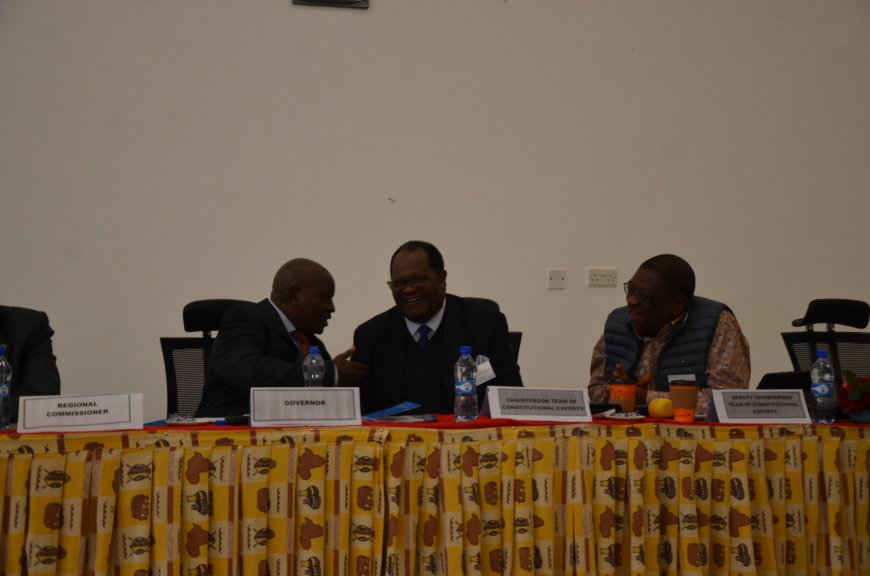Formation of the EAC confederation could fast-track the adoption of a common currency

Nyeri, Thursday, 18, May, 2023,
KNA by Wangari Mwangi/Samuel Maina
The vice chairperson of the of Constitutional Experts on the Drafting of East Africa Community (EAC) Political Confederation Constitution, Amos Wako, has hinted at the possibility of the proposed Confederation Constitution being the key that unlocks the gridlock towards attaining a common EAC currency.
Wako, a onetime Attorney General and immediate Busia Senator says that as much as the East Africa Monetary Union (EAMU) taskforce has given 2031 as a new deadline, the ongoing plans to formulate the Political Confederation Constitution may bring the deadline nearer.
The former lawmaker has said that in addition to pushing for political and social integration, the confederation constitution would equally touch on the economic aspects affecting the bloc and as such, necessitate the need to have a single currency.
“There are very heavy economic issues involved and the experts on these issues are governors of the Central Banks and I know they are meeting to see if there is a convergence in economic terms so that we can have one currency,” said the former AG.
“I believe that the movement towards a confederation is going to give a very important impetus to the unity in the monetary union. They (EAMU) have given themselves up to 2031 by which time we should have one currency but I still believe that through the confederation we may bring this closer,” added Wako who was speaking at the sidelines of a Stakeholder Consultations forum on the drafting of EAC Political Confederation Constitution in Nyeri.
In December last year, a taskforce set up to look into the implementation of the EAMU proposed an extension from the initial 2024 as the year that the EAC was expected to have adopted a single common currency. In its resolution, the taskforce set the year 2031 as the new date given that member states had not met the requisite requirements.
“Attainment of these criteria has been challenging to most Partner States, partly due to increased demand for infrastructure development and spending to mitigate the economic impact of the Covid-19 pandemic. According to the roadmap, the EAC convergence criteria were to be attained by 2021 and be maintained for three years in the run-up to the establishment of the Monetary Union in 2024,” said Dr Pantaleo Kessy, Principal Economist, and EAC Secretariat.
The EAMU taskforce comprises governors of the Central Banks and Ministers of Finance from the member states.
It also draws membership from Capital Markets, insurance and pension firms in the countries.
According to the EAMU protocol, before the Monetary Union can be established, the EAC member state must fully implement the Customs Union and Common Market Protocols. Currently the member states are at different levels of implementation.
Other contentious issues that will have to be resolved before the six member states can have a common legal tender include the disparity in the strengths of currencies of the states and the location of the Central Bank of East Africa.
Other requirements include the attainment of the ceilings on headline inflation of eight per cent, the realization of the official foreign exchange reserve target of 4.5 months of imports and the realization of the debt to Gross Domestic Product target of less than 50 per cent.
Courtesy; K.N.A
What's Your Reaction?
























































































































































































































































































![Ruto drops sipangwingwi remix hours after NCIC declares the term as hatespeech [VIDEO]](https://nairobireview.com/uploads/images/202303/image_430x256_642515bb3c7b5.jpg)










